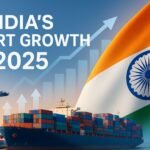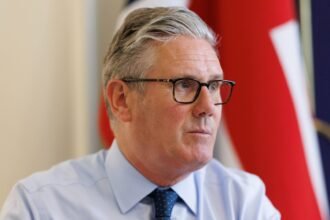New Delhi: Prime Minister Narendra Modi addressed the World Food India 2025 at Bharat Mandapam, New Delhi and underlined India’s emergence as a global powerhouse in food production, processing, and innovation. Speaking before farmers, entrepreneurs, investors, and policymakers, he emphasized that India possesses a unique “triple strength” of diversity, demand, and scale, making it one of the most attractive investment destinations in the world.
The Prime Minister noted that in the past decade, 25 crore people have overcome poverty and entered the neo-middle class, a segment whose aspirations are now reshaping food trends across the country. He highlighted India’s transformation into the world’s third-largest start-up ecosystem, with thousands of new ventures driving innovation in food, agriculture, artificial intelligence, and e-commerce. According to him, diversity, demand, and innovation together make India the most compelling destination for global investors.
He stressed India’s role as a reliable contributor to global food security, citing record growth in food grains, milk, rice, wheat, fruits, vegetables, and fisheries. With India contributing 25 percent of the world’s milk supply, leading globally in millets, and ranking second in rice and wheat production, the country has repeatedly stepped up during global food crises and supply chain disruptions. “Whenever the world faces a shortage, India stands firm,” he said, positioning India as a dependable partner for the international community.
The Prime Minister celebrated the empowerment of small farmers, who make up more than 85 percent of India’s agrarian community, and who are now emerging as a major force in the market. Since 2014, over 10,000 Farmer Producer Organisations (FPOs) have been created, linking lakhs of farmers to markets and enabling them to launch branded products. More than 1,100 FPOs now record turnovers above ₹1 crore annually, with items such as Kashmiri saffron, Himachali apple juice, Rajasthani millet cookies, Bihari makhana, and Kerala’s coconut oil reaching households nationwide. Modi added that cooperatives, supported by reforms and a dedicated ministry, are giving the dairy sector and the rural economy new resilience.
The government, he said, has allowed 100 percent FDI in food processing, expanded mega food parks, and introduced the PLI scheme. As a result, India’s processing capacity has grown twentyfold in a decade, and exports of processed food have more than doubled. He also drew attention to the Next Generation GST reforms, pointing out that more than 90 percent of processed food products now fall under the zero to five percent GST slab. Essentials such as butter, ghee, and milk cans are taxed at just five percent, reducing costs for both producers and consumers, while GST on biodegradable packaging has been slashed from 18 percent to five percent, encouraging eco-friendly innovation.
World Food India 2025 itself reflects India’s growing global stature, with participation from 21 countries, 150 international delegates, and multiple CEO roundtables alongside B2B, B2G, and G2G interactions. Nations such as France, Germany, the USA, Australia, Italy, and South Korea are showcasing their technologies and partnerships, while 14 thematic pavilions focus on sustainability, plant-based foods, nutraceuticals, pet food, and other emerging sectors. Modi concluded by urging international investors to seize this unprecedented opportunity, declaring that this is the right time to invest and expand in India, and reaffirming the government’s commitment to nutrition, sustainability, and global food security.



















